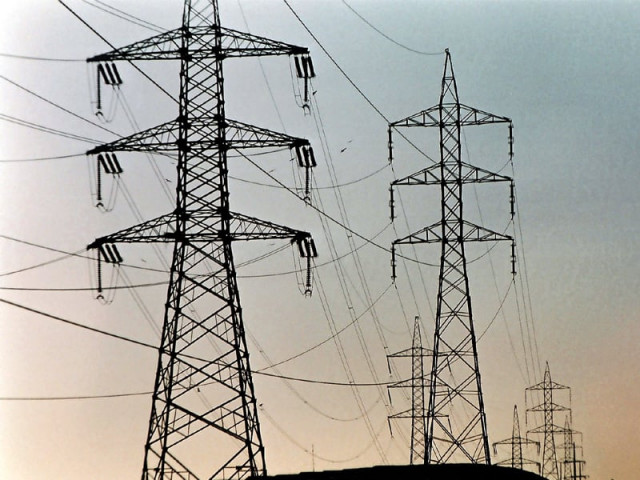Tackling circular debt: Govt to issue Rs70b term finance certificates
Power tariff to be increased by Rs1.20 per unit soon.

Tackling circular debt: Govt to issue Rs70b term finance certificates
In an attempt to rein in the runaway inter-corporate debt and tackle the power crisis, the government has decided to raise Rs70 billion from the reserves of Oil and Gas Development Company (OGDC) by issuing term finance certificates (TFCs).
The decision was taken in an emergency meeting held here on Wednesday to discuss the energy crisis and calm down things after the government defaulted on sovereign guarantees to independent power producers (IPPs).
President Asif Ali Zardari was present in the meeting and approved the proposal to generate Rs70 billion from the reserves of OGDC by floating TFCs, officials said.
The president directed the ministries of water and power and petroleum to send a summary to the Economic Coordination Committee (ECC) for approval of the proposed TFC plan.
Under the plan, the Central Power Purchasing Agency (CPPA) will purchase TFCs at Karachi Inter-bank Offered Rate (Kibor) plus 5% for a period of three years to control the circular debt.
According to a petroleum ministry official, the TFCs will be transferred to OGDC’s reserves and the amount of Rs70 billion will be paid to Pakistan State Oil (PSO) and IPPs. PSO will then release the money to refineries to reduce its dues. Later, the refineries will clear the dues of OGDC.
“This plan will settle the Rs450 billion outstanding dues of different enterprises,” the official said.
However, IPPs Advisory Council Chairman Abdullah Yousuf said the issue of sovereign guarantee default had not yet been resolved. “Negotiations are going on and the water and power ministry has assured us that it will take up the matter with the ECC on Tuesday next week,” he said, adding the government was imposing penalties on IPPs, which was not fair.
Power tariff
Separately talking to the media, Water and Power Minister Naveed Qamar announced that power tariff would be increased by Rs1.20 per unit and a notification in this connection would be issued soon. The notification has been sent to the Law Division for vetting.
At present, the base power tariff is Rs7.80 per unit and following the increase the tariff differential subsidy will come down.
Earlier, the law ministry had rejected the summary of the water and power ministry, seeking an increase of 12% in power tariff because of some issues relating to court cases against tariff hike.
“Now, the water and power ministry has addressed concerns of the law ministry and the notification will be issued soon,” a senior official of the water and power ministry said.
Power outages reduced
In a statement, Water and Power Minister Naveed Qamar announced a one-hour reduction in load-shedding for Faisalabad power looms and small textile mills in order to facilitate small industries.
The reduction would be effective from Saturday following improvement in power generation.
The duration of outages would come down to three hours from four hours and apply to all the industry-dominated feeders there, he said.
Qamar made the announcement in a meeting with a delegation of Faisalabad power looms association, textile exporters association, hosiery manufacturers association, embroidery manufacturers association and Faisalabad Chamber of Commerce and Industry.
The minister also extended bill payment date for two days for the industrial consumers. He assured them that the surcharge issue would be taken up with Nepra to address their reservations.
Published in The Express Tribune, May 10th, 2012.



















COMMENTS
Comments are moderated and generally will be posted if they are on-topic and not abusive.
For more information, please see our Comments FAQ